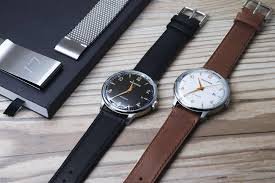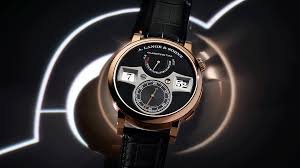Introduction
Buying your first watch is more than just a functional purchase—it’s a statement about who you are. For first-time buyers, it’s common to feel both excited and overwhelmed with so many brands, styles, and features available. Whether you’re a watch enthusiast getting started or a fashion-forward individual looking to elevate your style, this guide will help you make an informed decision.
We’ll explore key factors to consider, provide a data table of popular beginner-friendly watches, and cover some frequently asked questions (FAQs) to make your watch-buying experience seamless.
Why Buying Your First Watch Matters
A watch is more than just a timekeeper. It’s an accessory that speaks to your personality, taste, and sometimes even your achievements. Here are a few reasons why buying your first watch is significant:
- Personal Expression: A watch complements your outfit and reflects your unique style.
- Functionality: Beyond telling time, modern watches can track fitness, display dates, and sync with your smartphone.
- Durability: A well-made watch is an investment that can last for years, and in some cases, even generations.
Key Features to Consider When Buying Your First Watch
1. Budget
Deciding on a budget is the first and most important step. Watches can range from $50 to thousands of dollars. For first-time buyers, aim for a budget between $150 and $500 to find quality watches without overcommitting.
2. Watch Style

There are various styles of watches, and choosing one depends on your personal aesthetic and lifestyle. Here are a few to consider:
- Dress Watches: Sleek and minimalist, perfect for formal occasions.
- Sports Watches: Durable and often water-resistant, ideal for active individuals.
- Smartwatches: Feature-packed for tech enthusiasts.
- Casual Watches: Versatile and great for everyday wear.
3. Movement Types
The movement is the mechanism that powers the watch. The three main types are:
- Quartz (Battery-powered): Affordable and accurate.
- Mechanical (Hand-wound or Automatic): A craftsmanship favorite, valued for its intricate design but often more expensive.
- Smartwatch Movement (Digital): Powered by software, offering customizable watch faces and advanced functions.
4. Materials and Build Quality
- Case Material: Stainless steel is durable and corrosion-resistant, while titanium offers lightness.
- Strap Options: Choose from leather, stainless steel, NATO straps, or silicone depending on the style you prefer.
- Crystal Type: Watch faces are typically made from mineral glass, sapphire crystal (scratch-resistant), or resin.
5. Water Resistance
Consider where you’ll wear your watch. A 30-meter water resistance is fine for daily use, but opt for a 100-meter or above rating if you plan to swim or snorkel.
6. Brand Reputation
Brands like Seiko, Timex, Citizen, and Casio are well-known for offering reliable, stylish watches that are ideal for first-time buyers.
Beginner-Friendly Watch Recommendations
| Brand | Model | Style | Price Range | Key Features | Best For |
|---|---|---|---|---|---|
| Seiko | Seiko 5 Sports | Casual/Sports | $300-$399 | Automatic movement, durable build | High-quality beginner |
| Timex | Timex Weekender | Casual | $75-$100 | Minimalist design, interchangeable straps | Budget-friendly |
| Citizen | Citizen Eco-Drive | Dress | $200-$350 | Solar-powered, stainless steel case | Eco-conscious buyers |
| Casio | G-Shock DW5600 | Sports | $100-$200 | Shock-resistant, rugged design | Active lifestyle |
| Apple | Apple Watch SE | Smartwatch | $250-$350 | Health tracking, smartphone sync | Tech enthusiasts |
Tips for Maintaining Your First Watch
- Regular Cleaning
Wipe down the watch case and strap with a soft cloth to remove dirt and sweat. Avoid exposing leather straps to excessive moisture.
- Service Your Watch
Mechanical watches require periodic servicing every 3-5 years, while quartz watches may only need occasional battery replacements.
- Store Properly
When not in use, store your watch in a case or box to prevent scratches and exposure to sunlight.
- Avoid Magnets
Keep your watch away from magnetic fields as they can affect the movement, particularly for mechanical or quartz watches.
Frequently Asked Questions
1. Should I buy a quartz or mechanical watch?
Quartz watches are affordable, accurate, and low maintenance, making them ideal for beginners. Mechanical watches, while more expensive, offer unmatched craftsmanship and are perfect for enthusiasts.
2. Is it worth buying a smartwatch as my first watch?
Smartwatches are great for functionality and fitness tracking. If you value tech features and connectivity, a smartwatch could be a great first choice.
3. How many watches should a beginner start with?
A single versatile watch is enough to start. Choose a design that suits both casual and formal settings. Over time, you can build your collection.
4. Are luxury watches worth the investment for beginners?
Not necessarily. It’s better to start with a mid-range watch and upgrade later if you develop a passion for luxury timepieces.
5. What size watch should I buy?
Consider the size of your wrist. Standard men’s watches range from 38mm to 42mm, while women’s watches often span 26mm to 36mm. A balanced fit is key!
The First Step Toward Timeless Style
Buying your first watch is an exciting milestone, whether you’re drawn by the artistry, the functionality, or both. By choosing a timepiece that matches your lifestyle, budget, and personality, you’re embarking on a lifelong appreciation for watches.
Remember, your first watch doesn’t have to be “perfect”—it’s about starting your collection and discovering what you love along the way. If you’re still unsure where to begin, start with trusted brands like Seiko or Citizen.
Now that you’re ready, there’s no better time to begin exploring. Your search for your first watch begins here!



1 Comment
Pingback: Native Canadian Culture – Traditions, Art, and History